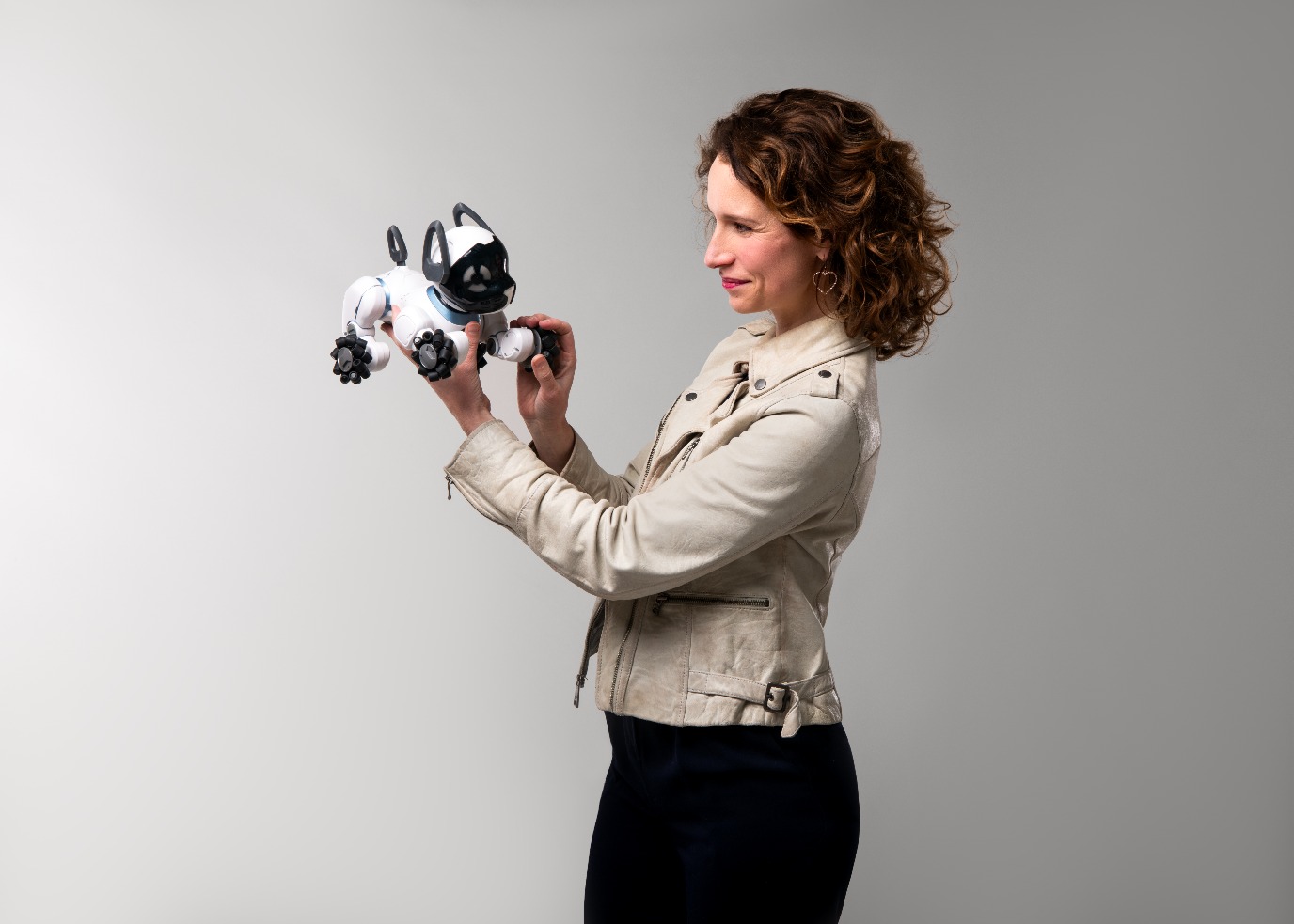Steffie van der Steen receives NWO-XS grant for research on the use of a robotic dog in speech therapy treatment

Steffie van der Steen has been awarded an NWO-XS grant from the NWO Open Competition – SGW for her research on the use of robotic dogs in speech therapy treatments. The research examines whether adding a robotic dog to standard speech therapy treatments has a positive effect on young children with language difficulties. Van der Steen is conducting this research in collaboration with Sam Griep (treatment coordinator at Koninklijke Kentalis) and her team.
Van der Steen says: “Robotic dogs only obey when given clearly pronounced commands, and their obedience provides a natural reward. This makes practicing with them potentially valuable for children with speech/language problems. Research on the use of live dogs or human-like robots in speech therapy shows potential benefits, but both have disadvantages in terms of animal welfare, possible allergies, or long preparation times and disruptions to interactions between the therapist and child. These challenges might be lessened with a robotic dog, making this an interesting new research direction.”
The participating children will do a series of exercises with the robotic dog at the end of their weekly speech therapy session. Through language tests and observations (before and after measurements), the added value will be mapped, and the development of these children will be compared to that of children who do not have the robotic dog integrated into their speech therapy sessions.
The use of a robotic dog in speech therapy has never been done before. Van der Steen came up with the idea after a previous study compared therapy with a real dog to the same therapy with a robotic dog for children with Down syndrome or autism. "Many parents of children with Down syndrome reported after the study that their child had started speaking more and more clearly after the sessions with the robotic dog. This prompted the investigation of the potential benefits of the same robotic dog for young children with language difficulties."
The robotic dog used in the research is limited in the tasks it can perform. If the addition of the robotic dog proves beneficial in speech therapy, follow-up research may explore robot animals that can help practice a wider range of words.
About NWO Open Competition – SGW
The NWO Open Competition – SGW aims to give researchers in the Social and Behavioral Sciences the opportunity to carry out research on a topic of their own choosing, without thematic constraints. This funding instrument is designed for a wide group of researchers at various stages of their scientific careers. The NWO-XS grant amounts to a maximum of 50,000 euros and is intended to support promising ideas and innovative initiatives within the social and behavioral sciences.
More information
Steffie van der Steen
| Last modified: | 19 November 2024 4.21 p.m. |
More news
-
15 April 2025
Impact gaswinningsproblemen op Groningers: negatieve ontwikkeling zet niet door, maar meerdere keren schade blijft een punt van zorg
Impact gaswinningsproblemen op Groningers: negatieve ontwikkeling zet niet door, maar meerdere keren schade blijft een punt van zorg
-
17 March 2025
Liekuut | The high price of conflicts
According to Carsten de Dreu, Professor of Foundations of Cooperation and Social Organization at the University of Groningen, a lot can be learned from conflicts.
-
10 March 2025
Science for Society | Memory Lab for higher marks
Learning facts at school is something hardly anyone likes. The day before a test, pupils cram as many words or names as possible into their heads, only to hopefully remember them the next morning and then forget them again after the test.


